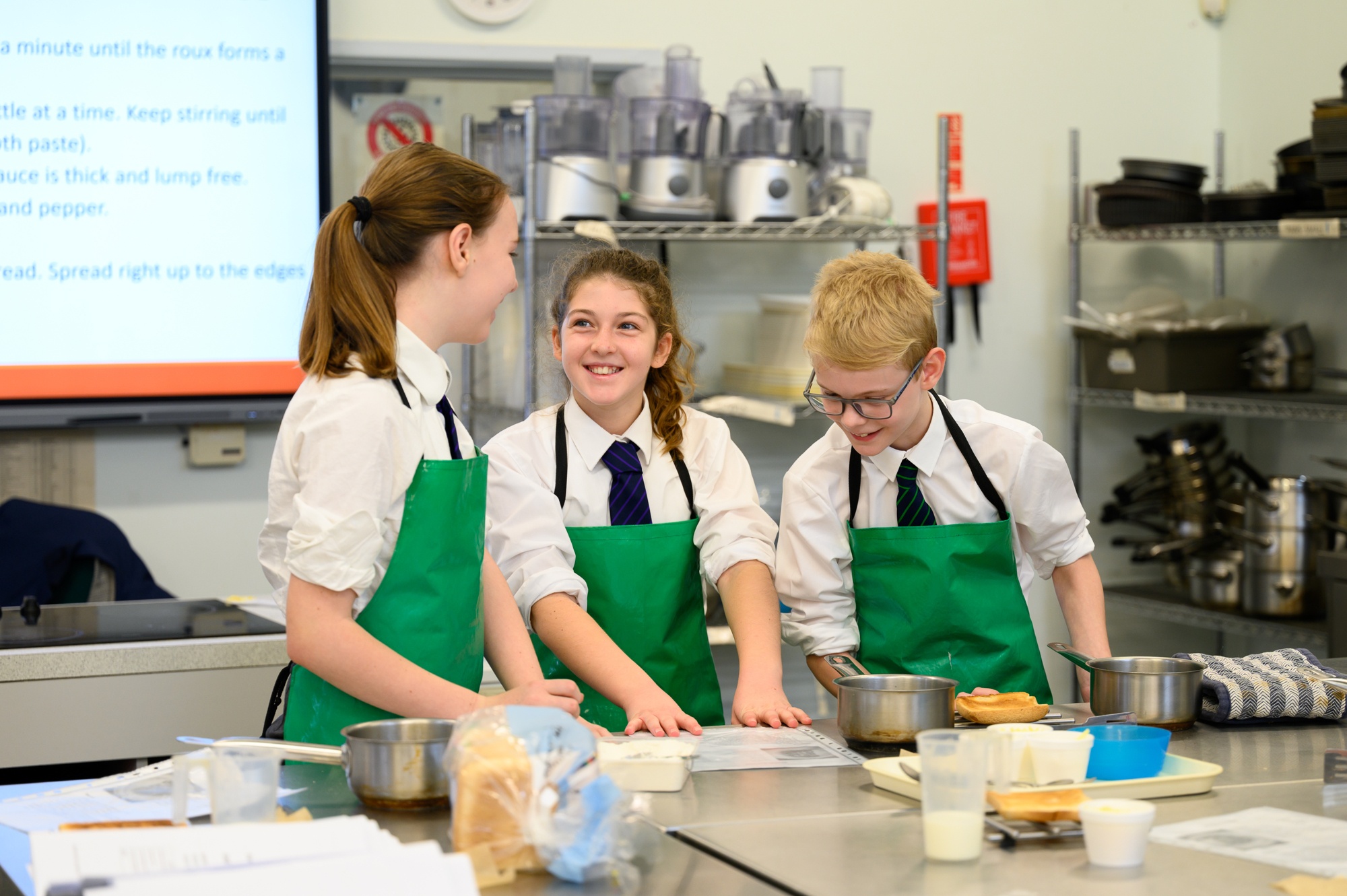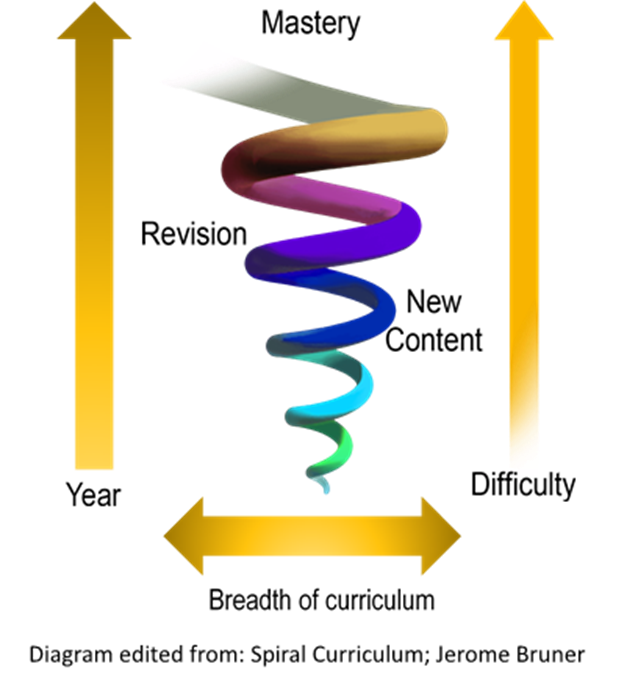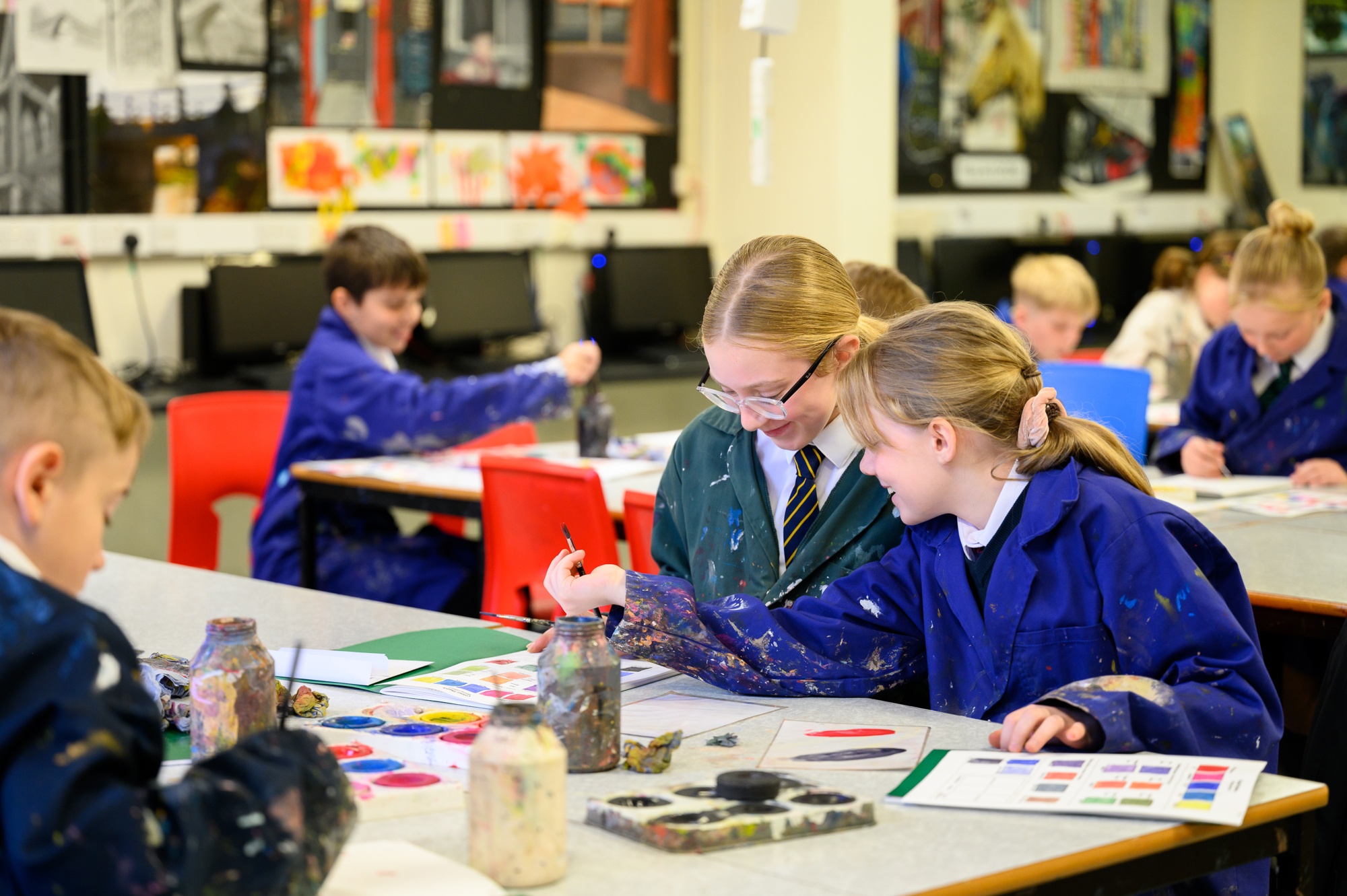Curriculum

Curriculum at Aylsham High School
Students have a wide and varied curriculum at Aylsham High School and achieve fabulous outcomes in national examinations. Students follow the National Curriculum throughout their time with us. When students enter Key Stage 4 the curriculum splits into ‘core’ and ‘options’. The Core Curriculum is compulsory and ensures students can access a full range of post 16 courses and employment opportunities when they leave AHS. However, we also firmly believe that a rounded education goes significantly beyond these core subjects. From year 9 all students can choose 1 subject per year as an option. This gives students the freedom to experience a broad range of practical and arts subjects. As well as the formal curriculum we are keen to promote extra-curricular activities. Many of our students choose to represent the school in sports, take part in drama and music events, join our Young Chamber or complete the Duke of Edinburgh Award programme at bronze, silver and gold level to name a few opportunities. We also offer several overseas visits which provide students with opportunities to expand their learning and bring the curriculum to life. These trips also allow students to learn about different cultures whilst developing life skills and social experiences. Locations visited would include Italy, Iceland and Canada.
The content for our curriculum at Key Stages 3 and 4 is prescribed by the national curriculum (https://www.gov.uk/national-curriculum/key-stage-3-and-4 ). The timetable is organised into subjects and students are taught by specialist staff.
Within this national curriculum content our teachers and subject leaders, through engagement with relevant research, have identified the core knowledge and key concepts to which it must be applied.
Key Stage 3 (KS3), in the core subjects, covers years 7-9 and the optional subjects years 7-8. The aim of this part of a student’s time at Aylsham High School is to be used to embed a firm understanding of the underlying concepts so they feel familiar and manageable yet remain novel and stimulating when encountered in more depth and complexity at Key Stage 4 (KS4). Students transition to KS4, in the core subjects, in years 10 and 11 and during this time they will cover the GCSE specifications set by the exam boards.
We aim, where possible, to teach a ‘spiral curriculum’.

The KS3 curriculum needs to build on the work done by primary colleagues and prepare students for KS4, bridging the gap between the two and covering the content specified in the National Curriculum.
With a spiral curriculum we aim to introduce new material after revising previously covered content. This constant interleaving of prior learning, with a gradual increase in difficulty and breadth, has been shown to be one of the most effective ways for students to build confidence, learn and ultimately be successful in their learning.
A more detailed curriculum for each subject can be found: https://www.aylshamhigh.com/learningsubjectsahs
The Core Curriculum
The intentions of the core curriculum are to:
- ensure all students leave compulsory education with a set of academic qualifications
- ensure students have the necessary base so that they are well equipped for all choices post 16.
- maximise students’ chances to achieve their best English language and maths GCSE results
The Core Curriculum is a set of subjects that keeps young people’s options open for further study and future careers.
The KS4 Core Curriculum comprises of GCSE:
- English language and literature
- Maths
- Double award Science
- Geography or history
- French
There is a parental information guide about the Core Curriculum produced by the DFE that might be useful.
Our curriculum is organised so that the vast majority of students will follow this range of courses until the age of 16 and this is the compulsory core curriculum. To facilitate this we are staffed with fully qualified subject specialist teachers in all of these areas. Our students have a super track record in national examinations, in each of these subjects, and many use this foundation to study these subjects at post 16 level.
The optional curriculum
Research shows the importance of the core curriculum but for many of our students the optional subjects are the areas they enjoy the most. We have therefore organised our optional curriculum to give as much flexibility and choice for our students as possible. For this reason KS3, in the optional subjects, ends in year 8; we still cover the national curriculum but in these subjects it is done in 2 years rather than 3. This allows students to specialise a year earlier in subjects that they enjoy and are interested in and has been shown to improve behaviour and attitudes to learning.In addition, research also shows that students, as they move between stages in their education, can struggle with the step up to the next level. Our curriculum organisation staggers this transition, so students are only working in KS4 for 20% of their time in year 9 and this, we feel, prepares them better for their studies in year 10 and 11.
As a result of this curriculum model, we can offer a wide range of optional courses suitable for our full range of learners. Full details can be found: https://www.aylshamhigh.com/optionchoices
Our arts and practical courses are very popular, to name a few subjects, in our class of 2024 along with the majority of students following the Core Curriculum:
- 15% took art GCSE
- 22% took graphics GCSE
- 12% took textiles GCSE
- 41% took food GCSE
- 30% took design technology GCSE
- 38% took business studies GCSE
Homework
GCSEs were reformed from 2017. Grades now go from 9 (high) to 1 (low). During this change the content level of the qualifications was increased; more challenging material was added and the idea of a ‘good pass’ was raised from a grade 4 to a 5. Coursework in almost all subjects was removed and where it stayed in practical subjects it now counts for fewer marks.
All GCSEs therefore have important examinations at the end of the course. We have therefore come to the conclusion that, if a student is to reach their academic potential on these courses, they have to be completing high quality work outside of the school day. These habits of independent study are best established from year 7 so, in recent years, we have been setting more regular compulsory homework for all year groups.
Independent learning and homework is a vital component if students are to fulfil their true academic potential. Research has shown that effective use of homework can add 5 months additional progress to a student. It is therefore important that students, parents/carers and teachers collaborate to make working at home successful.
Homework will be used across KS3 and KS4 to support students with their learning outside of the classroom. This work will focus on:
- Learning core knowledge. A copy of the core knowledge can be found on the school website in the parent tab.
- Learning subject specific vocabulary and its meanings.
- Deliberate practice/rehearsal of subject material to help embed and develop new knowledge.
- Developing independent learning skills and creativity.
Homework tasks are planned to fit in with a subject’s programme of study, which means that the regularity for setting homework will vary from subject to subject.
When homework is set within a lesson, teachers will support students to help ensure that:
- They understand the task which is being set to support successful completion e.g. setting homework activities at the start of the lesson
- The homework is recorded on SIMs parent and SIMs student. This will support students with the completion of this work and also means that it is communicated to parents/carers. If either you, or your child, needs help accessing SIMs please contact us (simsparent@aylshamhigh.norfolk.sch.uk) and we will be happy to help.
- Students have access to additional material to support the successful completion of homework. This can be shared with students via Google Classroom.
If homework is not clear, or too hard, it can create stress for a family and we are very keen to avoid this. Please email the teacher or head of department if your child is unclear on what needs to be done. (https://www.aylshamhigh.com/usefulcontactsandemailaddresses)
Core knowledge
Core knowledge is the information which students need to know in order to help them to make progress within a subject. There is a strong correlation between a student's success in a subject and their recall and understanding of core knowledge within the subject. Once students have learnt their core knowledge they will be able to apply it and use it fluidly and creatively to support their learning. It is important that we work together to help your child with their learning of this information. Students’ recall of this information is best when they are quizzed regularly at home. To help with this, all the core knowledge can be found on the school website under the learning & subjects heading.
Departments will have additional online tools such as Quizlet, Carousel Learning and Seneca to support students with their learning of this information.
Assessment and recording
Departments will use various assessment methods to support students on their learning journey. For example:
- core knowledge is quizzed via regular low stakes assessments in class. This retrieval practice supports the transfer of knowledge into a student’s long term memory.
- online assessments via Google Forms, Seneca, Learning Carousel and Quizlet. This allows students to practise retrieval of knowledge whilst providing instant feedback.
- formative assessment activities to help identify student progress and any gaps or misconceptions in understanding.
- summative assessments which provide students with the experience of preparing for, and completing, formal assessments. To support students, they are provided with topic lists to help guide their preparations.
- peer and self assessment provides students with instant feedback and allows for modelling of responses to take place. This type of feedback is a very powerful tool.
The assessment outcomes should help students to understand:
- the progress that they are making
- the next steps they need to take to make further progress
- how their achievement compares with course expectations.
Assessment of a student’s performance will highlight strengths, and areas for development, in their learning. It will emphasise the power of the possible and the importance that hard work plays in supporting future learning. We will encourage students to learn from mistakes and develop resilience when faced with new challenges. These principles reflect a growth mindset approach to learning.
Reporting
It is our belief that the more parents/carers are informed about the academic performance of their child, the more they are in a position to encourage and support their child. We report to parents/carers on a termly basis using SIMs Parent. This can be accessed via the SIMs Parent app or website (a link is found on the school’s home page on the website, https://www.aylshamhigh.com/keycontactsahs ).
SIMs parent is an online reporting system which will be used to provide parents/carers with:
- Reports at key points during the year.
- Daily updates on your child’s attendance, behaviour and rewards.
Parents/carers need to sign up and complete the online registration in order to access this useful information. Please email, (simsparent@aylshamhigh.norfolk.sch.uk), if you need further assistance.
In addition, we are always happy to initiate a current progress report if parents are concerned about their child’s progress at any stage during the year. Requests of this nature should be made via the pastoral team, pastoral@aylshamhigh.norfolk.sch.uk
The reporting information is also available to students via SIMs student.
Our subject reports will contain feedback on whether a student is engaging with their learning. A student is engaging with their learning if they:
- complete classwork to a good level.
- behaviour in a manner which supports their learning and the learning of others.
The ‘engagement with learning’ criteria used are exceptionally, actively and not yet. A barrier to learning will be used to identify any factors which are preventing a student from making progress. These are aspects which a student needs to address in their future learning. Examples of barriers to learning include attendance, gaps in core knowledge, quality of work, or participation.
Reports will also include a ‘homework completion’ section. Homework is crucial part of learning if students are going to be successful in their studies. All homework should be communicated with students and their families via SIMs. The criteria for this sections is all, most, some and none.
We have also included in the reports a section called ‘learning aspects to be celebrated’. We recognise that the majority of students work well in school and complete work as required. This allows teachers to celebrate these successes with students.
For students completing KS4 qualifications, grades will be shared on the reports. This will be based on a student's performance relative to the cohort and national data.
Following the completion of assessments at KS3, the % outcome for a student will be shared with families. This will be reported against the average outcome for all students who completed the same assessment. Again, sharing information in this way means that data is accurate and we can be confident in its accuracy.
Updated November 2024

